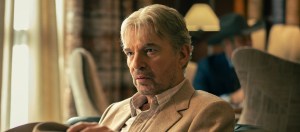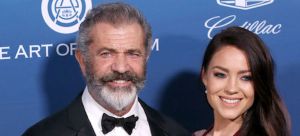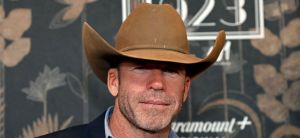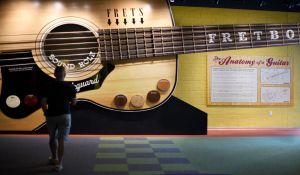The Judy Garland biopic Judy narrows its focus to a specific era of her life a string of concerts at London’s Talk of the Town club in late-1968 after being unable to find work stateside. Despite the limited timeframe, star Renée Zellweger felt that it was necessary to convey the larger legacy Garland left behind. This included a scene that the Texas native admitted wasn’t exactly “historically accurate.”
The scene involved Garland being invited back to the home of an elderly gay couple after a show, where they proceed to laugh and drink the night away. Speaking to a crowd after a screening of Judy at the AFS Cinema in Austin, Texas, earlier this week, Zellweger explained why it necessary for the story.
Videos by PopCulture.com
“It was very important that we had a representation of what it is she meant to the LGBTQ+ community without being expositional,” Zellweger told the crowd adding that “it felt important to show it in some way.”
“Back to The Wizard of Oz, where we’re talking about going on that journey with her, a girl who doesn’t feel that she belongs and imagines a place where her dreams will come true — implying that you are enough to manifest things in your own life.”
Zellweger went on to explain that being gay back then often meant that people “could not live authentically.”
“Could you imagine, living at that time, someone of her stature and of her international acclaim speak out and say ‘I see you, and I love you?’ That must’ve meant everything,” Zellweger wrote.
Along with her early advocacy for LGBTQ+ equality, Garland was known for forming a certain rapport with her audience, which was something Zellweger tried to capture while they were filming on the very stage that she’d performed at some 50 years prior.
“I would sit with the actors who were playing the audience and we would share stories,” Zellweger said. “Some had been there, or their parents went all the time, and they saw Judy. And we’d just share stories about what it was about her that touched us and why we wanted to be there. And I’m not kidding, it was one of the most special experiences I’ve ever had. Not just as a professional experience, but what a beautiful thing to share. This celebration of her. It really felt like that. It felt like an active celebration of her work.”
Judy is directed by Rupert Goold, and written by Tom Edge, based on the play The End of the Rainbow by Peter Quilter.








